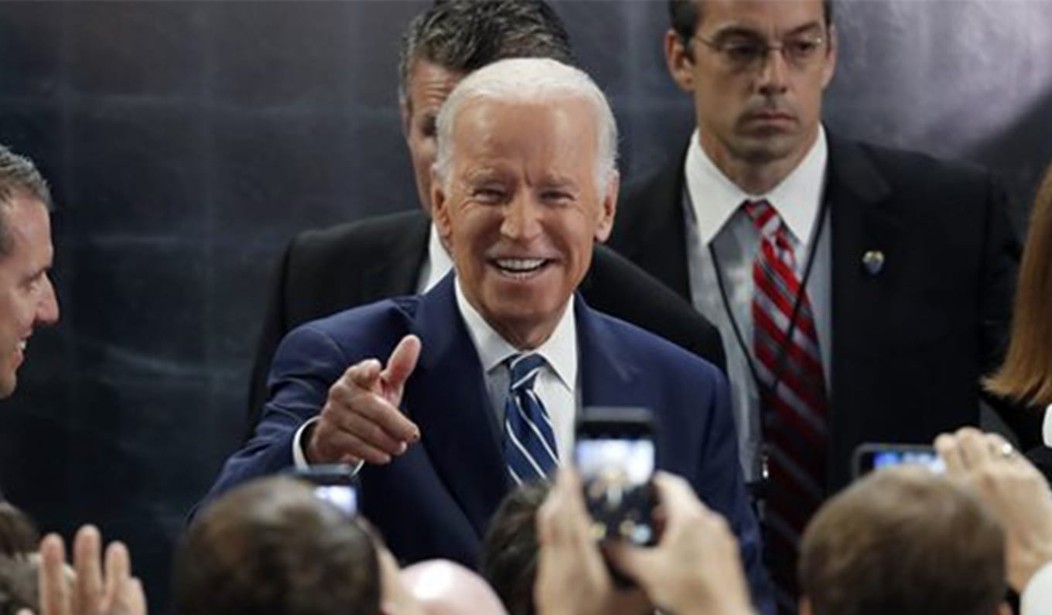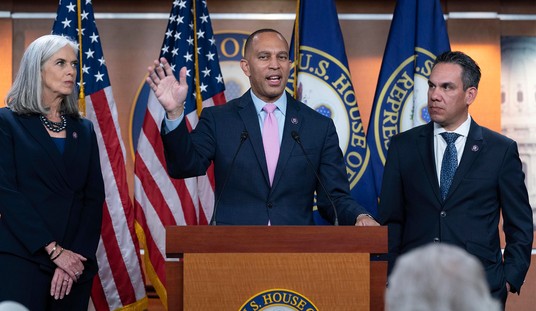It would be easy to believe Democratic 2020 presidential candidate Joe Biden’s Wednesday comment downplaying China as a threat to the U.S. was merely a political move to position the former Vice President in opposition to the Trump administration.
But alas, Biden may actually be revealing to the American people a long-held policy belief he holds, while also providing clues as to what a Biden presidency’s foreign policy might look like.
At an event in Iowa City, Biden cavalierly dismissed the notion that China could ultimately overtake the U.S. as a world superpower, particularly on the economic front.
“China is going to eat our lunch? Come on, man,” the former vice president said.
“I mean, you know, they’re not bad folks, folks. But guess what? They’re not competition for us,” he added.
…
“They can’t even figure out how to deal with the fact that they have this great division between the China Sea and the mountains in the east, I mean the west,” Biden said without elaborating further, in an apparent reference to the South China Sea. “They can’t figure out how they’re going to deal with the corruption that exists within the system.”
This led to much bipartisan condemnation but really shouldn’t have been much of a surprise, at least to British political pundit Steve Hilton writing at Fox News. Hilton, recounting parts of Peter Schweizer’s 2018 book “Secret Empires: How the American Political Class Hides Corruption and Enriches Family and Friends,” notes that Biden’s documented attempts to curry favor with Moscow are less worrying than his conflicts of interest with the Chinese communist regime.
In December 2013, then-Vice President Biden rode Air Force Two on an official trip to Asia, as tensions were high over disputed territories in the East China Sea. Biden was joined by his son, Hunter, who was building a private equity firm along with his business partner and friend, Chris Heinz – heir of the Heinz Ketchup family fortune and stepson of then-Secretary of State John Kerry.
Vice President Biden and Hunter Biden were ushered into Beijing on a red carpet with a delegation of Chinese officials. From there, Joe went straight into meetings with the vice president of China and President Xi Jinping. The next morning, the Bidens had a meeting with the U.S.-China Business Council. From there, it was off to Villa No.5 of the Diaoyutai State Guesthouse, where Madame Mao lived during the cultural revolution.
Joe Biden struck a soft, friendly tone with the Chinese leadership, disappointing allies in the area, like Japan, who were alarmed by China’s increasing aggression. But perhaps Joe had other issues besides the global balance of power on his mind, issues like his son’s business deals.
Hunter’s presence on the trip was far from coincidence. Just 10 days later, his company, Rosemont Seneca, signed an exclusive $1 billion deal with the state-owned Bank of China, creating an investment fund called Bohai Harvest, with money backed by the Chinese government. In the words of Peter Schweizer, who first unveiled these conflicts of interest in his book “Secret Empires,” “the Chinese government was literally funding a business that it co-owned along with the sons of two of America’s most powerful decision makers.” That is what it looks like to be “compromised by a foreign power.”
The Trump administration has taken a much more aggressive approach to China, levying tariffs and publicly calling them out for years of intellectual property theft, among other things. Secretary of State Mike Pompeo said last December that China was the greatest geopolitical threat the U.S. faces.
Biden, obviously, does not agree. The question is: does he counter Trump’s view because he truly believes the U.S. is on better footing on the world stage than the current administration believes it to be? Does he counter it because he believes China is on weaker footing? Or does he counter it because he has used his past political positions to reap personal and family enrichment from a regime that was, at the same time, violating what the U.S. believes to be fair trade standards?
And if it’s the latter, which Hilton citing Schweizer seems to be acknowledging, is a “friendly tone” toward China what Americans need in the White House, even if it might just be the result of paying back old debts?














Join the conversation as a VIP Member